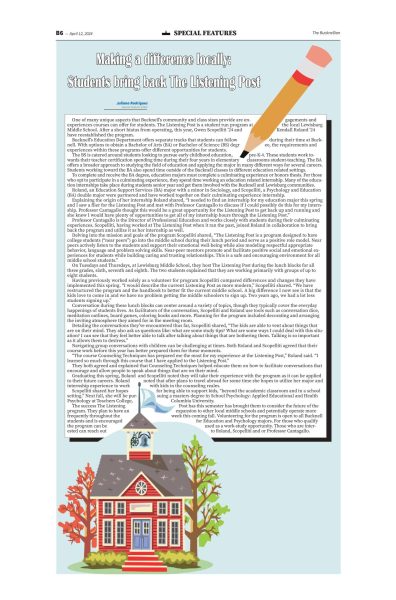Bucknell Institute for Public Policy (BIPP): The Panama Papers & policy implications of tax evasion
April 7, 2016
On April 3, the German newspaper Süddeutsche Zeitung leaked the International Consortium of Investigative Journalists’ 11.5 million documents from the Panamanian law firm Mossack Fonseca pertaining to the financial dealings of more than 200,000 individuals and institutions. Tax evasion en masse is nothing new to the world. We have long been aware of tax havens like the Cayman Islands harboring the wealth of the richest individuals in the world due to their low or non-existent taxing of peoples’ finances.
Panama is another popular location for tax evasion. The majority of tax evasion schemes are legal under international law. For a wealthy individual to avoid paying taxes on their fortune, they often set up phony “shell” companies in these countries where the identities of these individuals do not need to be disclosed.
Yet the Panama Papers are novel because information regarding these shell companies can be legally undisclosed, as is the current case in Panama. Revealed to be participating in mass tax evasion are 140 political figures, including heads of state. The first victim of the Panama Papers was taken April 5. Icelandic Prime Minister Sigmundur David Gunnlaugsson resigned the position for allegations of selling a shell company of his, which had investments in the Central Bank of Iceland, to his wife. Sergei Roldugin, believed to in Vladimir Putin’s inner circle, moved $2 billion to a collection of shells. Some of the transactions were even linked with Syria and North Korea. What’s more, many believe the Panama Papers to be the tip of an iceberg that is the dark market of international financial transactions.
From a structural perspective, there is much to be done. For one, countries like Panama must adopt laws, like much of the world already, that mandate financial disclosures. Blatant violations of international law, especially if they are funding genocide or dictatorships, should not go unpunished.
And of course, there is the fairness argument. It would be wrong to demonize the very wealthy for moving their money in vast quantities to foreign places to save money. If one were faced with the legal opportunity to do so and save substantial cash, they would be crazy to not capitalize on such an opportunity. But what about the morality of the existing laws? What about the efficiency?
The U.S. corporate tax rate has a federal minimum of 35 percent (which rises when factoring in state taxes), the highest among developed nations. Perhaps it is time we become competitive with nations so that corporations will move their headquarters back to America. Corporate subsidies are in excess as well, so these issues should be resolved in concert. As we gain more clarity into the Panama Papers, and as income inequality continues to grow, the issue of tax evasion will take center stage in the coming years.























